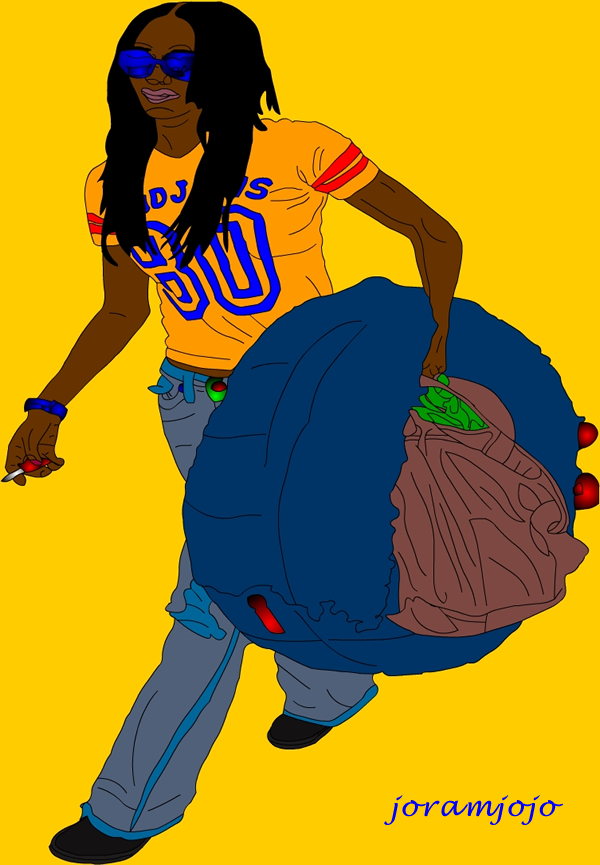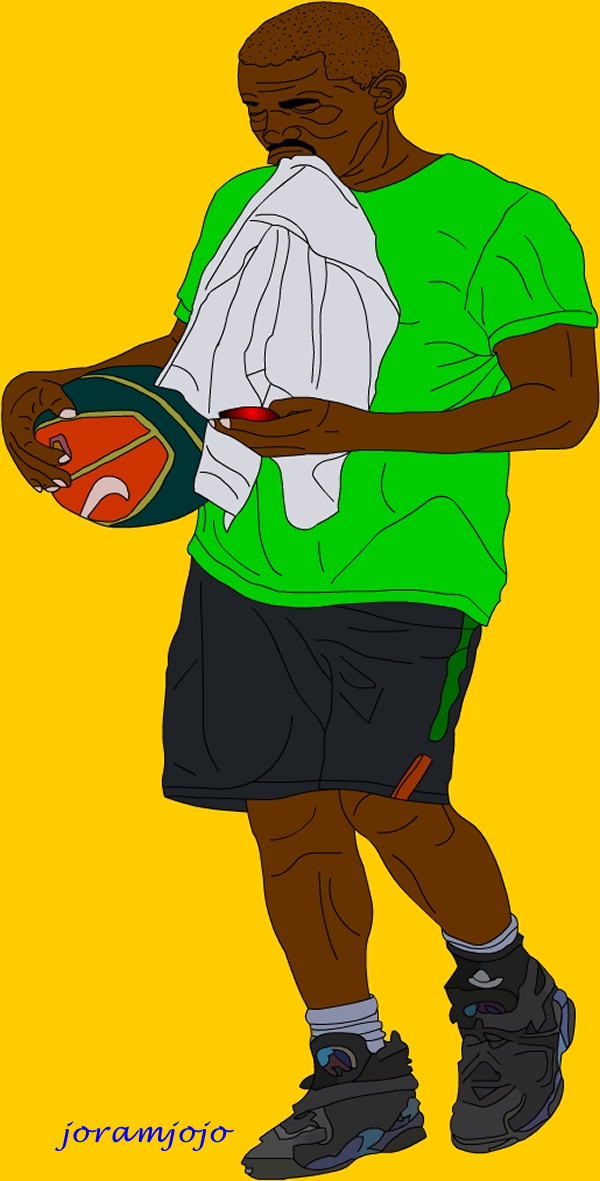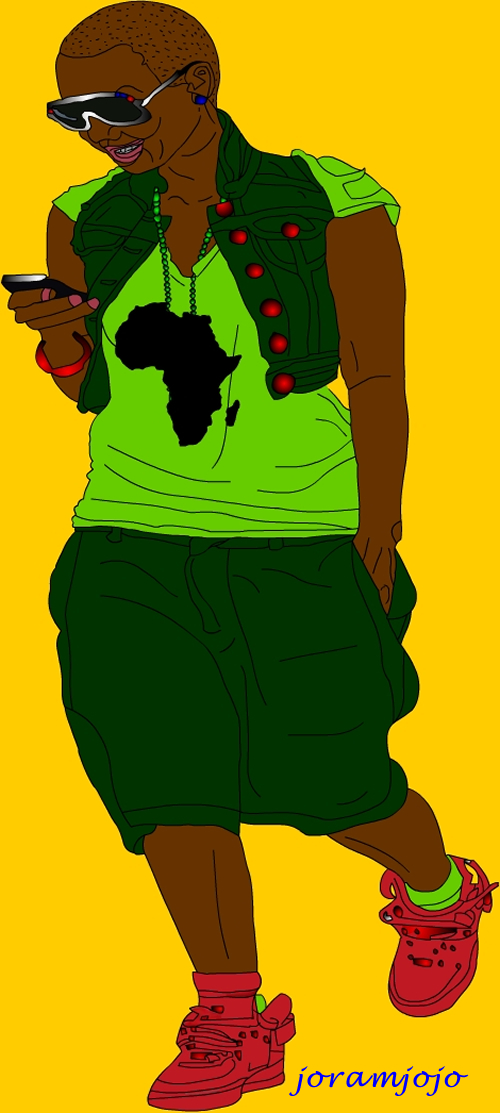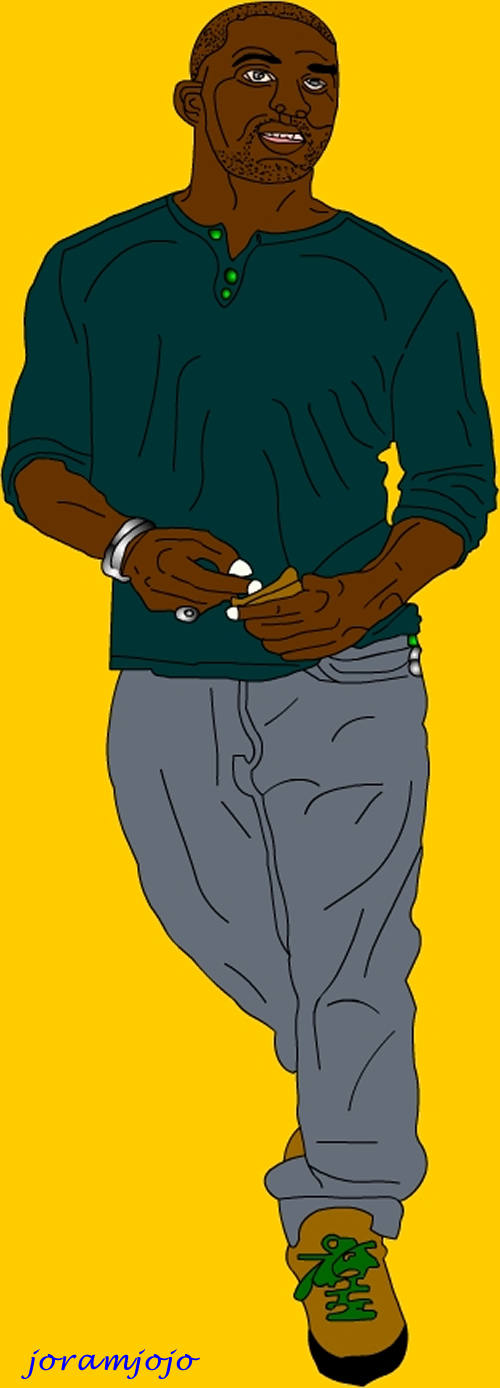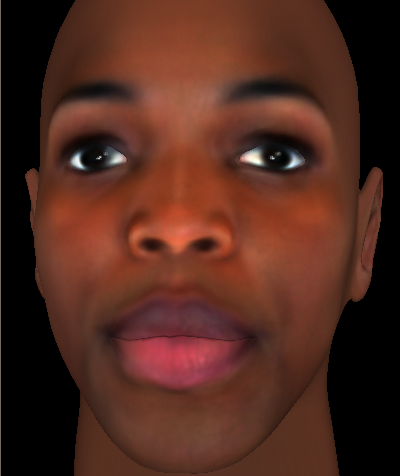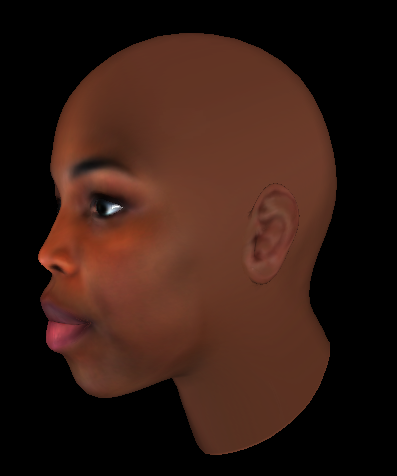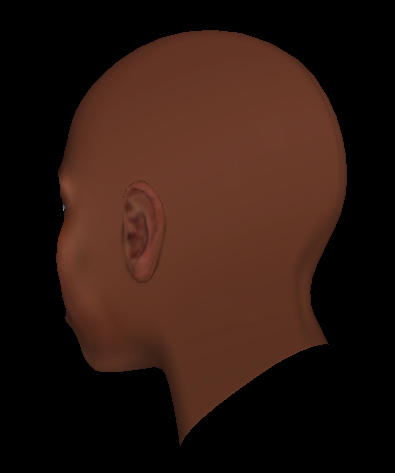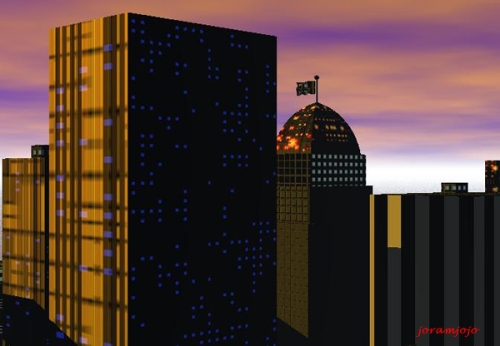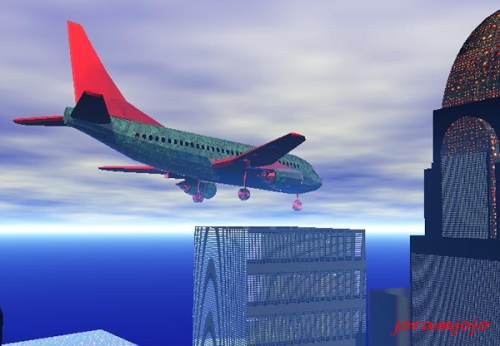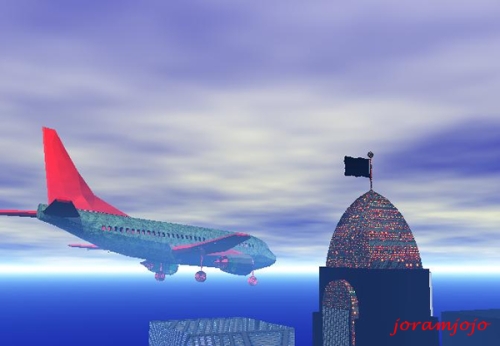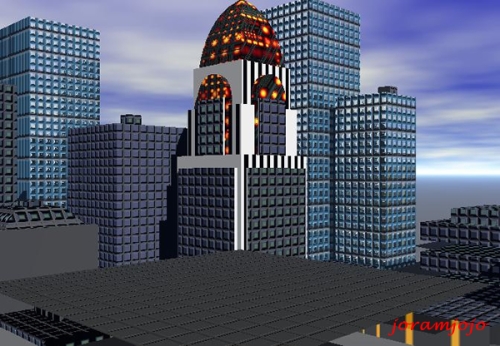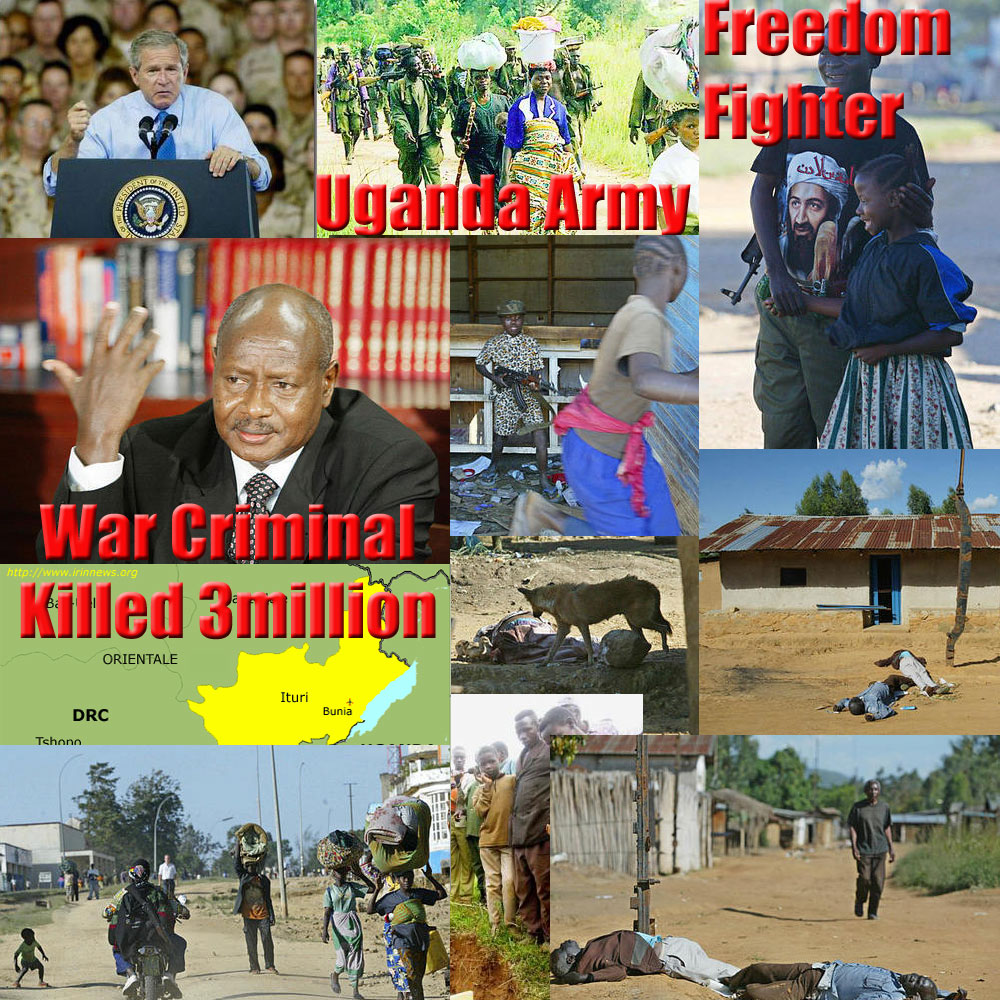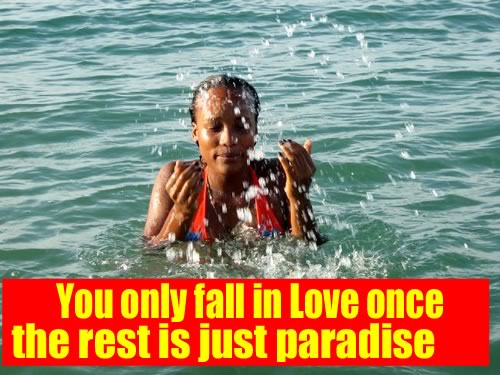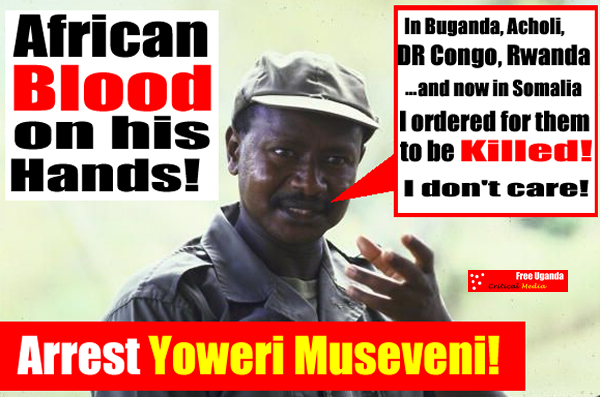
What happened to the hundreds of children that were in NRA(Now UPDF) and sent to Mubende. Where are all those children that In 2005, escaped or were captured or released from the LRA and pressured to join Yoweri Museveni's forces and fight the LRA. Where are they now? Why is Salim Saleh, a UPDF officer believed to have been banned from traveling to the United States over the UPDF’s role in the plunder of mineral resources from the DR Congo in the late 1990s, still a Cabinet Minister?
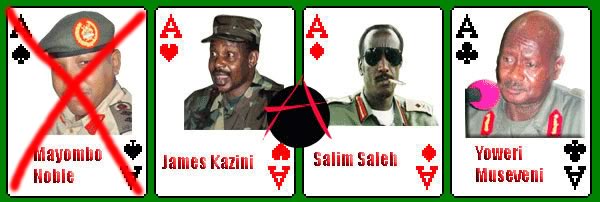
Why should a Killer and thief like yoweri Museveni, still be roaming western Capitals when the evidence is there for his arrest. Why should Sudanese Omar Bashir be wanted by ICC and Not Yoweri Museveni that has commited even worse crime?
See Illegal exploitation of natural resources and other forms of wealth of the DR Congo
Why should Darfur(less than 1000 dead) be called a genocide and not DR congo(6million dead).
Very simple. Yoweri Museveni is a western client and Omar Bashir a chinese client.
I'm not a big person on the world stage but big men like Alison Des Forges, Senior Advisor at the Africa Division of Human Rights Watch. said:
"Uganda sent its troops into Congo supposedly to assure its own security, but in the process, it has caused greater insecurity for its unfortunate neighbors," said Alison Des Forges, Senior Advisor at the Africa Division of Human Rights Watch. "Pulling out some of its troops does not relieve Uganda of the responsibility for investigating and punishing the soldiers who have been involved in these crimes."
Des Forges said that Congolese leaders, including the heads of political factions and organizers of militias, have also violated the rights of their fellow citizens in Ugandan-dominated zones. The Ugandans trained local combatants who were recruited by rival political leaders on the basis of personal or ethnic loyalty, and who were more likely to be used for local advantage than in the war against the Congo government. Both the Ugandans and leaders of the Congolese Rally for Democracy-Liberation? Movement (RCD-ML) recruited and trained children as combatants. In August 2000 Uganda airlifted 163 children from Congo to Kampala for military training.
"Uganda has repeatedly promised to end the use of child soldiers, yet here it is openly teaching Congolese children to make war," said Des Forges. "When does it plan to start making good on these promises?" Congolese political leaders in the Ugandan-controlled region have detained rivals, held them in inhumane conditions, and sometimes tortured them. Ugandan soldiers have similarly abused Congolese whom they have identified as opponents. Ugandan authorities in mid-2000 approved an alliance between RCD-ML leader Mbusa Nyamwisi and Mai-Mai?, a local militia hostile to foreign occupiers, and even arranged to provide military training for them. Later, Ugandans rejected the arrangement and began fighting the Mai-Mai?. In subsequent conflicts, Ugandan troops captured and summarily executed Mai-Mai? combatants. They also attacked local people thought to have aided the Mai-Mai?, killing civilians and laying waste their villages. Ugandan soldiers also backed the RCD-National, supposedly another rebel political movement but apparently really an operation to extract and market the rich mineral resources of the Bafwasende area.
"Ugandan soldiers have blatantly exploited Congolese wealth for their own benefit, and that of their superiors at home," said Des Forges. "In competing for control of Congo's phenomenal resources, the Ugandans as well as other parties to this war have committed countless atrocities against the Congolese population."
Unless the International Criminal Court is also part and parcel of Yoweri Museveni's African Genocide project, set out under article 15 of the Rome Statute of the International Criminal Court,an investigation proprio motu by undertaking a preliminary investigation of serious crimes committed in Ituri within the presumptive jurisdiction of the ICC for possible prosecution.
The Front for the Liberation of Congo in Ugandan occupied areas
The Movement for the Liberation of Congo (Mouvement pour la Liberation du Congo, MLC), headed by Jean-Pierre? Bemba, controls much of Equateur province in the north. By early 2001, it had established its sway over another, less well organized rebel group, the Congolese Rally for Democracy-Liberation? Movement (Rassemblement Congolais pour la Democratie-Mouvement? de Liberation (RCD-ML), which claimed to control parts of North Kivu, and Orientale provinces in eastern Congo. Uganda engineered this merger among its Congolese rebel allies to unify their military against the government alliance, and to shield it from increasing international scrutiny of its role in manipulating local political divisions and ethnic conflicts as a means of consolidating its control over these resource rich areas.
Uganda reacted angrily to the release in mid April of the report of the U.N. Panel of Experts on the Exploitation of National Resources and other Forms of Wealth of the DR Congo, threatening at one point to withdraw from the Lusaka peace process. Under international prodding, Uganda dropped the threat and committed to withdraw its troops from the country, saying that they have accomplished their mission of defeating the insurgent Allied Democratic Forces (ADF).
Human Rights Watch in March 2001 published the report "Uganda in Northeastern DRC: Fueling Political and Ethnic Strife" which documented the following abuses in areas occupied by Uganda near the border between Uganda and the DRC:
Ugandan military forces have played a decisive role in local affairs, even changing administrative boundaries and designating provincial officials, taking advantage of an administrative void resulting from continuing disputes among the various offshoots of the Ugandan- sponsored RCD-ML.
Within the context of the broader war and the continuing political conflicts, a small-scale dispute over land between Hema and Lendu peoples in northeastern DRC, one of many which previously appeared to have been settled peacefully, grew in scale and intensity. The Hema were thought to enjoy general support from the Ugandans, attributed to a supposed ethnic bond between the Hema of the DRC and those of Uganda. >From the first violence in June 1999 through early 2000, an estimated 7,000 persons were killed and another 150,000 were displaced. In the most recent incident of violence in January 2001, another 400 people were killed during one day of violence in Bunia and at least 30,000 people were forced to flee the region.
The perception that the Ugandan army supported the Hema was made real in many communities by Ugandan soldiers who helped Hema in defending their large farms against Lendu attack and who helped Hema militia attack Lendu villages. In some cases, these soldiers provided support in return for payments to themselves or their superior officers. In at least one case, Ugandan soldiers also assisted Lendu in attacking Hema. In one reported clash Ugandan soldiers backing different sides engaged in combat against each other. The assistance of Ugandan soldiers as well as the provision of training and arms to local forces resulted in a larger number of civilian casualties in these conflicts than would otherwise have been the case.
Under the guise of creating an army for the rebel movement, Congolese political leaders developed their own groups of armed supporters, bound to them by ties of personal and/or ethnic loyalty. On several occasions in the last two years, these armed supporters have engaged in operations in which civilians were killed. Uganda trained these groups even when it seemed likely that they would be used in local ethnic and partisan conflict rather than as part of a disciplined military force.
All parties, including the Ugandans, recruited and trained children to serve as soldiers. In August 2000 Uganda transported some 163 children, part of a larger group of 700 recruits, to Uganda for military training. Only in February 2001 did the government of Uganda grant various international agencies access to these children with a view to their demobilization and resettlement.
Contending RCD-ML political leaders Wamba dia Wamba and Mbusa Nyamwisi as well as Uganda People's Defence Force (UPDF) soldiers have illegally detained political leaders whom they have identified as opponents and held them under inhumane conditions. In some cases the UPDF and RCD-ML forces have tortured political opponents in detention.
The RCD-ML's "prime minister" Mbusa Nyamwisi, a local leader from a third powerful ethnic group, the Nande, sought to increase his power base by allying with Mai-Mai? forces, groups of local militia who had been fighting largely to expel foreign occupiers of their territory. Originally ready to tolerate this alliance, the Ugandans then rejected it. In subsequent conflicts with the Mai-Mai?, Ugandan forces as well as Congolese rebels loyal to Mbusa extrajudicially executed captured Mai-Mai? combatants. Subsequently, the UPDF attacked local people thought to have assisted the Mai-Mai?, killing civilians and laying waste to their villages.
Ugandan soldiers also formed and supported the front organization called RCD-National, which appeared to be an operation to extract and market the rich mineral resources of the Bafwasende area rather than the political party which it claimed to be. This blatant exploitation of Congolese wealth for the benefit of both locally based and other more highly placed Ugandan military officers symbolized the larger exploitation of the whole region for the benefit of outside actors.
Proxies Pursuing Their Own Interests
Ituri is home to eighteen different ethnic groups, with the Hema/Gegere71 and Lendu/Ngiti72 communities together representing about 40 per cent of the inhabitants. The other major groups are the Bira, the Alur, the Lugbara, the Nyali, the Ndo-Okebo?, and the Lese. With ethnic identity of growing importance, a new group has emerged, the "non-originaires"73, that is, `outsiders' who were not born in Ituri. The Nande of north Kivu represent the most prominent of the "non-originaires", due to their importance in the business sector. The emergence of Mbusa Nyamwisi, a Nande, as the leader of the RCD-ML raised the profile of the Nande in Ituri. Hema elites seeking to assert or protect their control of the political and economic spheres in Ituri tend to consider the Nande as direct competitors.
The Hema, Lendu, and other ethnic groups that serve as proxies for governments and rebel movements also seek to set agendas that serve their own interests. They are skilled at playing off the various outside rivals and change sides as their interests dictate. They adapt rapidly to developments on the national scene, working on the basis of the enemy of my enemy is my friend-at least for the moment.
Who Was Who - Armed Political Groups in Ituri
RCD-ML: Congolese Rally for Democracy- Liberation Movement
Current Leader: Mbusa Nyamwisi
Also know as RCD-Kisangani, the RCD-ML was launched in September 1999 in Kampala when Wamba dia Wamba split from the RCD-Goma. Backed at the start by Uganda, the RCD-ML has been fractured by leadership struggles and in-fighting. The current leader, Mbusa Nyamwisi took power after ousting Wamba dia Wamba. The RCD-ML's military wing is the Congolese Popular Army (APC). The RCD-ML entered into the Sun City agreement of April 2002 and the APC are now being trained and armed by Kinshasa.
MLC: Movement for the Liberation of Congo Current Leader: Jean-Pierre? Bemba
Based in Gbadolite, the MLC has been backed by Uganda since the start of the war in 1998 although there have been occasional differences between the two. The MLC tried twice to establish a foothold in Ituri: in 2001 Bemba had nominal control of the short-lived FPC coalition of Ugandan- backed rebel groups and in 2002 the MLC attacked Mambasa in western Ituri but were forced backed by the APC of Mbusa Nyamwisi. The MLC has occasionally fought alongside the UPC and has been a rival of Mbusa's RCD-ML.
RCD-National: Congolese Rally for Democracy - National
Current Leader: Roger Lumbala
Now based in Watcha, northern Ituri, the RCD-N initially operated as a front organization for the Ugandans in exploiting the diamond riches of the town of Bafwasende. In 2001 and 2002, the RCD-N supported MLC attempts to win resource-rich areas from the RCD-ML. RCD-N has few soldiers and relies on the MLC army.
UPC: Union of Congolese Patriots (predominately Hema/Gegere party)
Current Leader: Thomas Lubanga
Purportedly launched to promote reconciliation, the UPC quickly became a predominately Gegere-led political party intent on promoting the interests of the Hema and related Gegere. It came to power in Bunia in August 2002 with the help of the Ugandans and used Hema militia as part of its armed forces. It turned to Rwanda for support and formed an alliance with the Rwandan-backed RCD-Goma after being excluded by the RCD-ML and the MLC from the Mambasa ceasefire talks in December 2002. Having turned from Uganda politically, the UPC was ousted from Bunia by the Ugandan army in March 2003 but fought its way back into town in May.
FIPI: Front for Integration and Peace in Ituri (platform of three ethnic-based parties)
Current Leader: A coalition of three leaders of PUSIC, FNI and FPDC
Created in December 2002 with Ugandan support, the three ethnically-based political parties shared the objective of getting rid of the UPC. Otherwise FIPI has no apparent program. The group includes Hema dissatisfied with the UPC, Lendu, and Alur, each with its own political party (see below). After the UPC was forced from Bunia, the parties began squabbling and the coalition appears to have collapsed.
PUSIC: Party for Unity and Safeguarding of the Integrity of Congo (Hema dissatisfied with the UPC)Current Leader: Chief Kahwa Mandro
Former UPC member Chief Kahwa created PUSIC in early February 2003. Most members appear to be Hema from the south. Uganda supports the party as part of the FIPI coalition. Chief Kahwa was backed briefly by the Rwandans when he was in the UPC, but claims that PUSIC currently has no such support and is more interested in working with Kinshasa. PUSIC may have allied with the UPC against the Lendu in Bunia in May 2003; if so, this alliance of convenience would be tenuous and probably short-lived. PUSIC appears to have continued close links with Ugandan authorities.
__FPDC: Popular Force for Democracy in Congo (Alur and Lugbara political party)
Current Leader: Thomas Unen Chen, a former member of the Zairian parliament__
FPDC was created in late 2002 mostly by Alur and Lugbara from the Aru and Mahagi area, north Ituri, to counter the UPC. Recently it started to recruit and train its own militias. Although professedly interested in dialogue, it is prepared to fight if dialogue fails. It has been supported by Uganda as part of the FIPI coalition and appears to have close ties with former Ugandan army Col. Peter Karim, an Alur from Uganda.
FNI: Front for National Integration (Lendu political party)
Current Leader: Floribert Njabu Ngabu
Lendu intellectuals and traditional chiefs established FNI but the party claims broad support by the Lendu community in its effort to oppose the UPC. Lendu militias are reportedly being organised under the military wing of this party, which some equate with the FRPI (see below). Supported by Uganda as part of the FIPI coalition, it joined the Ugandan army in driving the UPC from Bunia on March 6, 2003, for which some its members were publicly thanked by Brigadier Kayihura in April. FNI has also benefited from military training and support from the RCD-ML and, through it, from Kinshasa.
FRPI: Patriotic Force of Resistance in Ituri (Ngiti political party)
Current Leader: Dr Adirodo.
Launched in November 2002 the Ngiti party FRPI is said to be closely linked to the Lendu FNI. It is meant to bring together Ngiti militias with traditional leaders in a single force against the UPC. Based in Beni and said to number 9,000 combatants, the FRPI has close ties to the RCD-ML from which it receives both military training and arms. It claims to have a large fighting force and many see it as the army of the FNI. It joined the Ugandans in driving the UPC from Bunia in March 2003 and together with the FNI briefly controlled Bunia in May 2003.
FAPC: People's Armed Forces of Congo (mixed)
Current Leader: Commander Jerome Kakawave Bakonde
Commander Jerome, based in Aru and Mahagi, established FAPC in March 2003. Jerome has changed allegiances several times, moving from the RCD-ML, to the RCD-N, to the UPC and to the Ugandans but he has more or less stayed in the area of Aru. His group recently obtained support from the Ugandans who attempted to put Commander Jerome in charge of a mixed security apparatus in Bunia just prior to the start of their withdrawal. Other parties objected and Commander Jerome returned to his home at Aru.74 A mutiny occurred in his ranks in May 2003 which was allegedly put down with Ugandan support.75 Jerome is reportedly a Banyarwanda from North Kivu.
The actions of the Hema Chief Kahwa Mandro illustrate the readiness of local actors to change allegiances. Initially supported by Uganda, Chief Kahwa and some other Hema noticed a decline in this backing and decided that the Ugandan Army was not doing enough to protect them against the Lendu. Chief Kahwa Mandro explained to Human Rights Watch researchers:
In August 2000, I was fighting the Lendu in Ituri. But I was accused of being with the Rwandans and the Ugandan rebels, the ADF, so the Ugandans also started to fight with me. I decided I should go and talk to President Museveni which I did in August. He decided that my cause was noble. Our group came for training to Uganda on August 28, 2000. I was in Uganda for 6 months at Kyakwanzi training camp where 705 of us were trained.
After Sun City the Lendu started to be armed by Mbusa RCD-ML and so we decided we had to get rid of him. Then Lubanga was arrested by the Ugandans. We didn't understand this. I stayed in Bunia while Governor Molondo planned a genocide against us.76 I started training about 3,000 fighters in Mandro with the financial help of the Hema community. We collected guns from small attacks. We had been negotiating with Uganda for three years and they had been responsible for so many deaths. No one was aware of our problem. In June 2002 I decided to go to Rwanda to find help for our defense. They had lived through a genocide so they knew what it was like. They understood me and provided us with weapons and logistics. I discussed the situation with James Kabarebe.
Initially this support was good and I thought Rwanda understood my situation, but they profited from it to create another situation. They wanted Ituri to be their rear base to attack Uganda. They continue to send arms including missiles and ammunition for tanks when we don't even have tanks. They are even sending troops. They are recruiting young soldiers and putting fear into them. They come in with small planes to airstrips like Mongbwalu, Aru, Boga and Bule. I know they do this as I used to go myself on small planes from Kigali to Ituri.77
After becoming disillusioned with Rwandan support and the policy direction of Lubanga's UPC, Chief Kahwa felt threatened. He separated from Lubanga's group and re-established links with the Ugandans. He continued:
I was on the list of people to be eliminated by the UPC. When Museveni found out about this, he sent a plane to come and get me. He encouraged me to talk to the Lendu in Kpandruma so we could stop fighting. I started a political party, PUSIC, and then became part of the FIPI coalition which wants peace in Ituri and includes Lendu plus others. I talked to President Kabila in Dar es Salaam where I told him he must stop supporting the Lendu. They were killing us. He understood.
I am going to attack Bunia again and will take it, even if I die. The Ugandan army is informed of our plans but I don't count on them for help.78
Assistance from external actors may prompt dissidents in a group to hive off and form their own organization, as Chief Kahwa did. However, external actors can also promote coalitions, including those across ethnic lines, like the FIPI group which included Hema, Lendu, and Alur political groups.
The increase in the number of combatant groups in and around Bunia has been matched by increased flow of arms to Ituri as outside actors attempt to ensure victory for their local allies. This greater availability of arms contributed to more casualties in Ituri including civilians.79 In addition to being better armed than in the past, Hema, Lendu, and Ngiti militia groups also appear to be better organized and trained and to function with a more structured military hierarchy.
The Hema - Lendu Conflict
The Hema are pastoralists and the Lendu agriculturalists, but historically there was a high degree of co-existence between the two groups and intermarriage was common. Belgian colonial rule accentuated ethnic divisions between the two communities, however, by trying to reorganize traditional chieftaincies into more homogeneous groups and by favoring the Hema over the Lendu. Even after independence in 1960, the Hema continued as the administrative, landowning, and business elite. When the territory of Kibali-Ituri? was created in 1962, for example, no Lendu obtained key positions in the administration. President Sese Sokoto Mobutu confirmed the Hema in management positions in the farming, mining, and local administrative sectors as part of his "Zairiaisation" policy. Hema and Lendu fought small battles over land and fishing rights on several occasions after independence, but in general customary arbitration, backed by the state, contained the incidents.80
At no point in the documented history of Ituri has the violence attained the levels seen since 1999. The broader war in Congo has undoubtedly sparked the greater violence of the current conflict.
This conflict began in June 1999 when a small number of Hema allegedly attempted to bribe local authorities into modifying land ownership registers in their favor in the area of Walendu Pitsu, part of the Djugu district of Ituri. They reportedly used the false papers to evict Lendu inhabitants from the land, or so some local Lendu believed. These Lendu decided to retaliate. In the absence of a strong local authority, the incident quickly turned into a confrontation between the two communities.
Ugandan interference aggravated the situation. Brig. Gen. James Kazini, then in charge of the Ugandan army in DRC, named Adele Lotsove Mugisa, a Hema, Provisional Governor of the districts of Ituri and Haut Uele81, formerly part of Orientale Province.82 Although the proposal to create such a unit had been backed by some politicians in the area, it was the decree of the Ugandan general that altered administrative boundaries, effectively creating a new "province." In his letter setting up the new post of governor, General Kazini gave full assurances of Ugandan support for the endeavor.83 This important decision, coinciding with the local land dispute, created the impression that the Ugandan army was siding with the Hema landholders.
By 2003 the original dispute had expanded in numbers of people and area touched by the violence. Groups like the Nande, Bira, and Alur previously not associated with either of the contenders have now been forced to choose sides.
HRW

